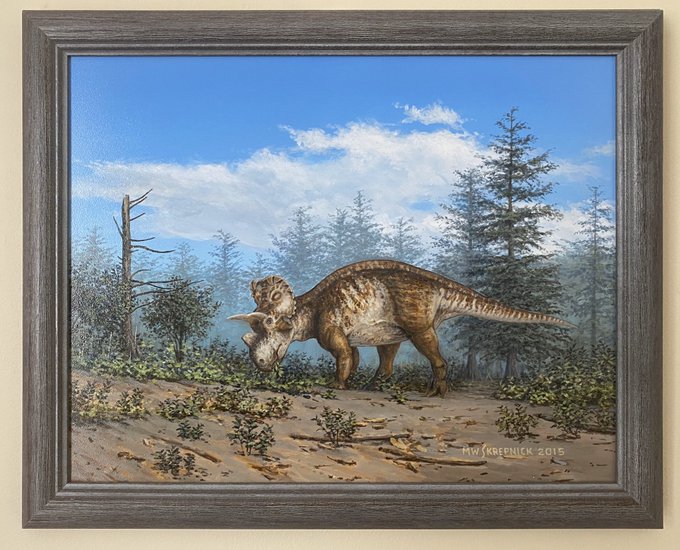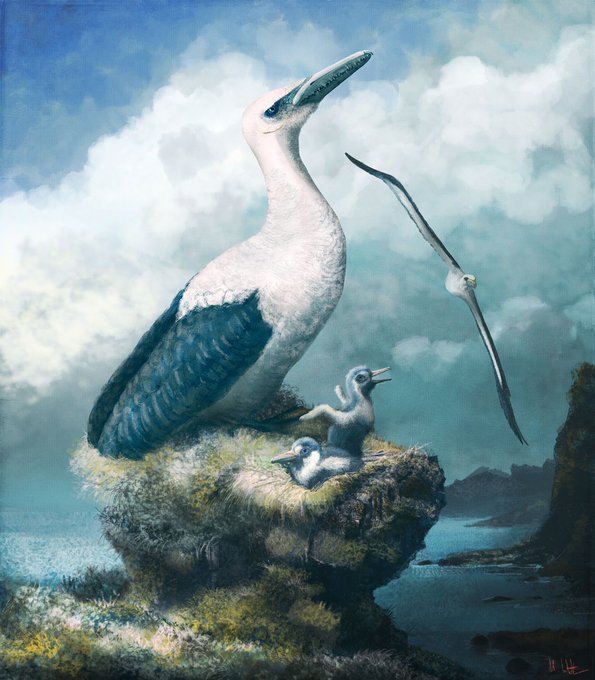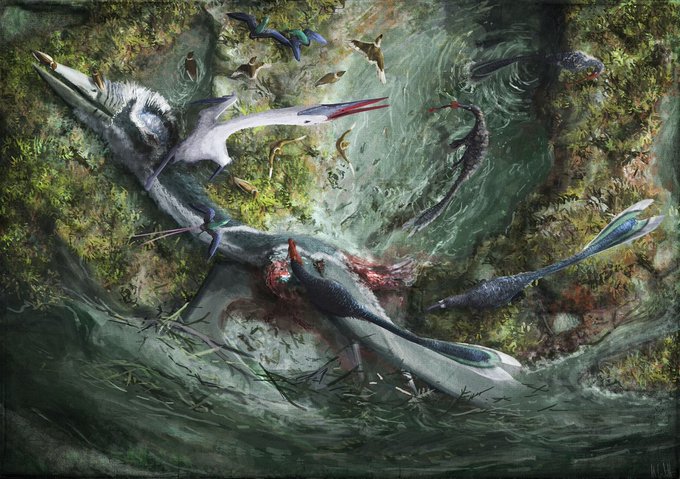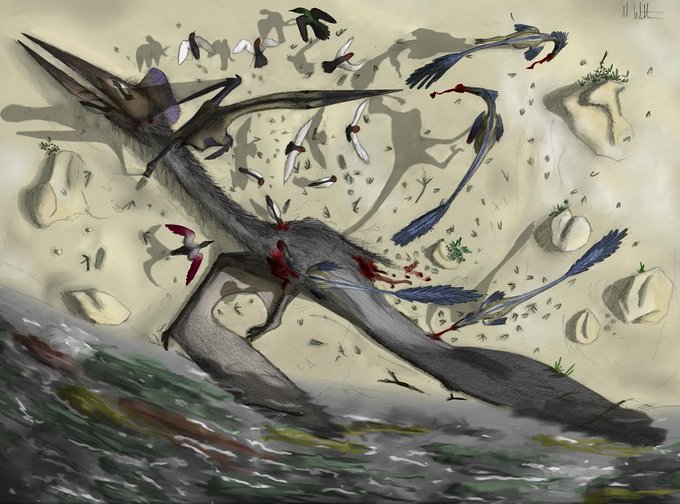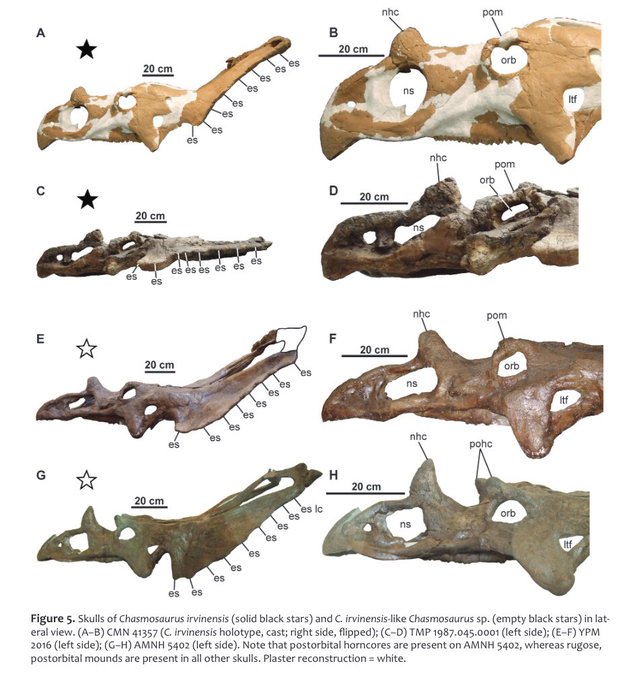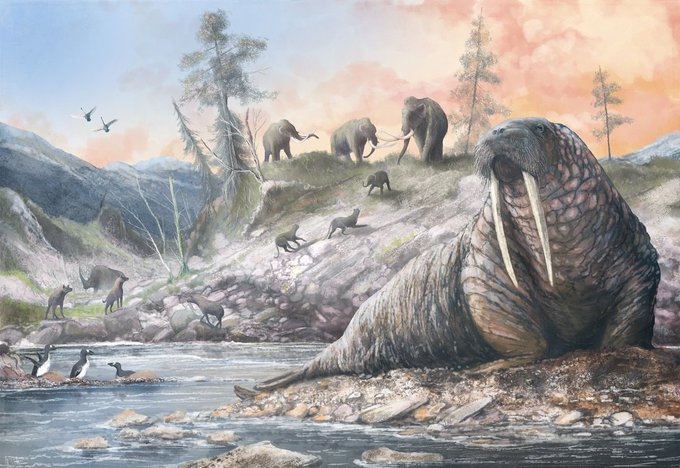fossilfriday,のTwitterイラスト検索結果。 74 件中 3ページ目
It’s #FossilFriday, so let’s dive into the new #Deinosuchus paper and my accompanying illustration. There’s a lot of material to cover, so get comfy. Unless otherwise noted, all images are either by me or from Cossette and Brochu (2020).
For #FossilFriday, since I know @Sketchy_raptor was also talking about this a while ago too, here's a handy guide to drawing theropod arms! #SciArt
For #FossilFriday, here's the entirety of my Georgiacetus #paleoart, not yet released online. Protocetids like Georgiacetus were among the last whales to have terrestrial capabilities: subsequent whale species were committed to life in the sea.
For #FossilFriday, the skull of a recently described new species of rodent with horns! https://t.co/Sl2B4trJ3I
Today's #NCMuseumsUnlocked takes us to @AuroraFossilMus in beautiful Beaufort Co.
It isn't officially #FossilFriday, but it might as well be!
Have you been to @AuroraFossilMus or Aurora Fossil Festival? Please share your images w/ the hashtag, & tag & follow the museum.
For #FossilFriday, I’ll conclude my #PaleoartInMyHouse tour with one of my prized possessions- an original oil painting of Wendiceratops by Mike Skrepnick. Collecting & describing this horned dino is a highlight of my career so far. Honored to have this hanging in my home office.
It's chucking it down here on this #FossilFriday, so here's some #paleoart of the plotopterid Copepteryx getting rained on. Plotopterids were a group of Eo-Miocene penguin-like birds that lived in the Northern Hemisphere. Some grew quite large - about the height of a human.
For #FossilFriday, here's #paleoart of two giant flying birds: Pelagornis and Teratornis. Pelagornis was the largest flying bird of all time, out-spanning even the largest teratorns (those early 8 m wingspan Argentavis estimates were over-enthusiastic).
I'm late for #FossilFriday, but better late than never, right? Here's some #paleoart of Cimoliopterus, one of the last of the toothed pterosaurs. The genus seems to have been widespread, occurring in both Britain and the United States.
For #FossilFriday, here's a private #paleoart commission of Tiktaalik I completed earlier this year. It took some time to get the body shape right as there's lots of subtle nuances to tetrapodomorph anatomy. They weren't just gars with funky heads and limbs.
For #FossilFriday, here's my 2017 #paleoart of the largest known ape, Gigantopithecus blacki, as featured in the Palaeoartist's Handbook and my upcoming book, Life Through the Ages II. It's sharing the scene with a Homo erectus.
For #FossilFriday, here's some #paleoart of the newly-named azhdarchid Cryodrakon made several years before the specimen was named. The two older images here are from 2009 (a whole decade ago!) and the newer, prettier version is from 2016.
For my first post on this #FossilFriday, the fantastic appendages of Anomalocaris magnabasis! Unlike Anomalocaris canandensis, A. magnabasis had a bunch of thin “spinules” projecting from the front side of each spine, used to help snare soft prey.
#Palaeontology #Paleoart
#FossilFriday, the oldest Machimosaurini marine crocodile. Very aboundant in the Late Jurassic of Europe, we have found this fossil in Moroccan early Bathonian deposits (ca. 168Mya). This is the oldest blunt-toothed marine crocodile.
https://t.co/zmVn1BnQCi
For #FossilFriday, the oldest European ruminant! Bachitherium thraciensis from Bulgaria & Serbia (ca. 38My, Late Eocene). These fossils explain a tectonical diachronism of the faunal dispersals into Europe at the base of the Oligocene (34My vs 31My).
#weloveruminants, #sabertooth
Just in time for #FossilFriday, new paper by Campbell et al: Temporal range extension and evolution of the chasmosaurine ceratopsid ‘Vagaceratops’ irvinensis (Dinosauria: Ornithischia) in the Upper Cretaceous (Campanian) Dinosaur Park Formation of Alberta https://t.co/RSGEtsJOrb
For #FossilFriday, the recently named Suskityrannus hazelae! This small tyrannosaur was found in New Mexico. A reconstructed skeleton has been on display @AzMNH for years, but is now joined by this beautiful (fuzzy!) life restoration by Benji Paysnoe. 🦖
#dinosaur #paleontology
Every #FossilFriday, we challenge you to write your very own #Palaeopoems. This week's #PalaeoPoemsPrompt is Hypacrosaurus, so let's hear your poems in the comments!
.
The second photo is a Hypacrosaurus illustration by @commababy for our Weston blog post. #SciArt #PaleoArt
For #FossilFriday, here's 2016 #paleoart of Spinolestes, an exceptionally well-known Cretaceous mammal from Spain. We know a lot about its skin and fur (except on the tail - the bushiness shown here is speculation) and also the shape of its ear pinnae, which makes me very happy.
For #FossilFriday, here's a walrus posing for a holiday snap during a busy day in Pleistocene Doggerland (a landmass now under the north sea). The walrus is our modern species, but most of the other species are extinct. #paleoart













